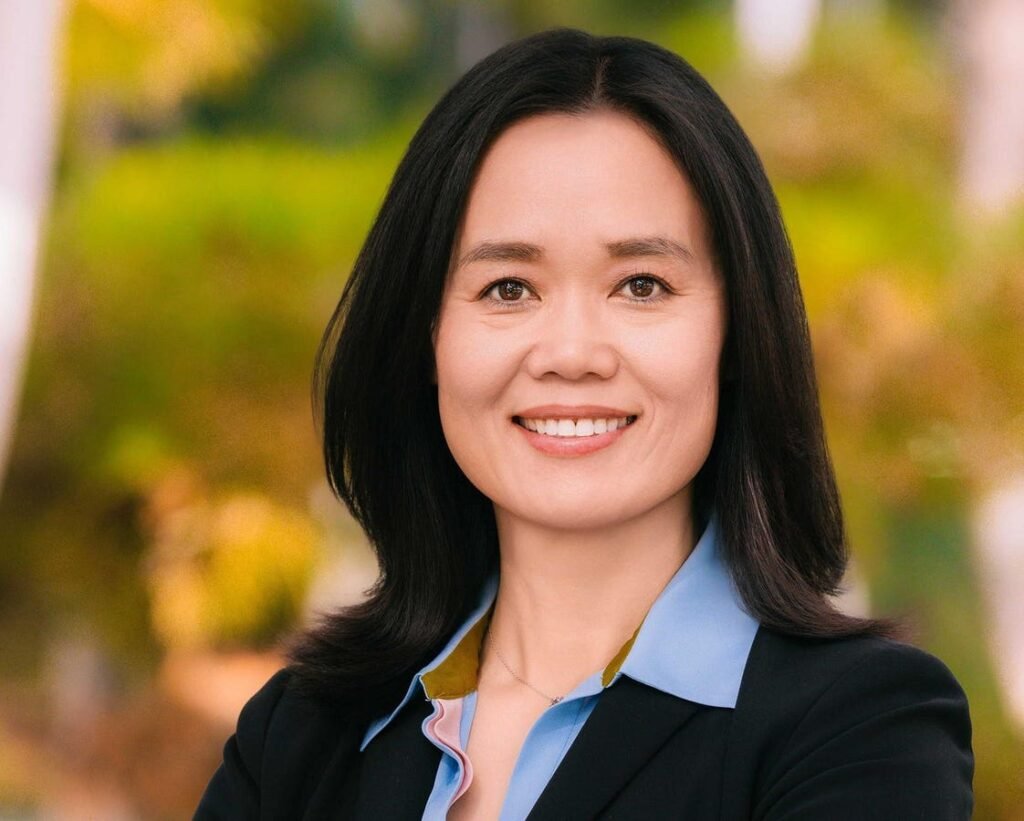Molly He CEO
Element Biosciences
ohOver the past two decades, genome sequencing — decoding the DNA building blocks of our genetic code — has become an essential tool in medicine, spurring the development of COVID-19 vaccines, generating new treatments for cancer and providing a key component of precision medicine, which tailors disease treatments to each patient’s unique biology.
San Diego-based startup Element Biosciences, with its DNA sequencing platform Aviti, is one of many players in this R&D sandbox. The company today announced it has raised a $277 million Series D investment at a valuation of $1.03 billion. The new funding brings the company’s total funding to date to $680 million. The round was led by Wellington Management Private Investment, with participation from Samsung Electronics, Venrock, T.Rowe Price, Fidelity, and others.
It’s a boon at the perfect time for Element: “Understanding the secrets of life and making precision medicine accessible and affordable is an expensive business,” said CEO and founder Molly He. Forbesnotes that the new investment will help the company accelerate research advances and commercialization. Key to that will be improving Element’s approach to “multi-omics” – the analysis and sequencing of DNA, which encodes genetic instructions, the RNA that executes them, and the proteins that are the building blocks of the body.
That’s the function of Aviti’s sequencer, which the company says has about 200 installed in labs, hospitals and pharmaceutical companies. In 2023, Element generated more than $25 million in revenue. The company expects to “more than double” that revenue in 2024 from sales of the $289,000 machine and the biological analysis kits it develops for it.
Despite its growth, Element still faces the lab’s 800-pound gorilla: Illumina, which currently controls about 80% of the sequencing market. Though its stock price is down nearly 80% from its high a few years ago, Illumina still has a market capitalization of about $17 billion and had sales of $4.5 billion last year. Other major players in the industry include California-based Pacific Biosciences and Germany-based Qiagen.
“It’s a bit like going from a toaster to a toaster oven. It just opens up more possibilities.”
Most competing DNA sequencers rely on a chemical method known as “sequencing by synthesis,” which has been around for nearly 20 years. Element uses a different type of chemical process to do this, called “avidity sequencing.” According to the paper published in the journal Nature, Nature Biotechnology Last year, this method produced highly accurate results with a simpler workflow and fewer materials, which helped Element gain a price advantage over larger competitors.
It’s tough for a startup to really break into such an established market — “Illumina has a lot of bugs on their windshield,” Wellington’s head of healthcare Josh Summerfield quipped — but Element’s technological differentiation makes it an attractive investment, he said, adding that the company’s foray into multi-omics positions it well for the future. “It’s a bit like going from a toaster to a toaster oven — it just opens up more possibilities,” he said.
Element’s instruments have more workflow flexibility than competitors’ instruments, which optimize their products for larger labs with high-volume, continuous sequencing flows, Somerfield said. This doesn’t necessarily lend itself to smaller labs or specialized research that doesn’t need to run large volumes at once. “If you drive 1,000 miles, you’re only getting 1,000 miles per gallon. If you only drive two miles, you’re using the same amount of gas,” Somerfield said.
Molly Ho, 53, first came to the US in 1992, moving from China to UCLA to get a PhD in protein biophysics and biochemistry. After three years in academia, she moved to industry, working for several biotech companies, including future competitors Pacific Biosciences and Illumina. In 2017, she left Illumina to found Element Biosciences with Mike Previte, now the company’s CTO, and Matthew Keringer, now vice president of biochemistry.
Earlier this year, Element launched its new Aviti24 sequencer, which will ship later this year and can perform multi-omics analyses simultaneously. The company is also pushing further into artificial intelligence, recently hiring a new executive to oversee the company’s efforts. Its products already employ machine learning as part of the genome sequencing process, but the company said further development will be necessary as Element’s customers collect more and different types of data.
“I call this an investment in scientific freedom,” she said. “The most important thing is making sure that scientific tools are within reach of all scientists, regardless of how well-funded they are.”
Read more at Forbes

